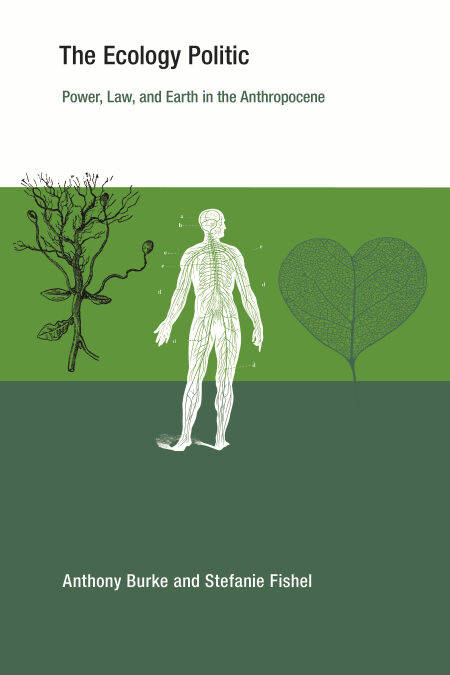
- Afhalen na 1 uur in een winkel met voorraad
- Gratis thuislevering in België vanaf € 30
- Ruim aanbod met 7 miljoen producten
- Afhalen na 1 uur in een winkel met voorraad
- Gratis thuislevering in België vanaf € 30
- Ruim aanbod met 7 miljoen producten
Zoeken
€ 54,21
+ 54 punten
Omschrijving
A compelling proposal for new international law and institutions to address the planetary crisis that improves biodiversity protection, supports Indigenous peoples, and prevents catastrophic climate change.
In The Ecology Politic, Anthony Burke and Stefanie Fishel contend that the roots of our planetary crisis lie in the modern state: in its destructive entanglement with capitalism and its colonial legacies of extraction and oppression. This, in turn, has shaped global governance and international law, as they continue to fail to curb global heating, deforestation, and extinction. In a far-reaching critique of the foundational political theory of the modern state—the Body-Politic—the authors insist that nothing less than a radically different model of the polity—an Ecology Politic—is needed if we are to escape this impasse.
Burke and Fishel argue that the international rule of law enacts a sovereign ban of nature that appropriates nonhuman lives for profit and use while denying them political and legal standing. We fail because we rely on the very institutions, worldviews, and systems that generated the crisis to solve it. The authors reconsider political power, agency, scale, and democracy in the Anthropocene and assert a biospheric ethic that values the entangled planetary structure of matter, energy, and life. Further, they argue for more-than-human beings to be represented in an ecological democracy that flows across borders. In short, they imagine a polity whose fundamental purpose is to protect planetary ecosystems and nurture interlocking systems of social and ecological justice.
In The Ecology Politic, Anthony Burke and Stefanie Fishel contend that the roots of our planetary crisis lie in the modern state: in its destructive entanglement with capitalism and its colonial legacies of extraction and oppression. This, in turn, has shaped global governance and international law, as they continue to fail to curb global heating, deforestation, and extinction. In a far-reaching critique of the foundational political theory of the modern state—the Body-Politic—the authors insist that nothing less than a radically different model of the polity—an Ecology Politic—is needed if we are to escape this impasse.
Burke and Fishel argue that the international rule of law enacts a sovereign ban of nature that appropriates nonhuman lives for profit and use while denying them political and legal standing. We fail because we rely on the very institutions, worldviews, and systems that generated the crisis to solve it. The authors reconsider political power, agency, scale, and democracy in the Anthropocene and assert a biospheric ethic that values the entangled planetary structure of matter, energy, and life. Further, they argue for more-than-human beings to be represented in an ecological democracy that flows across borders. In short, they imagine a polity whose fundamental purpose is to protect planetary ecosystems and nurture interlocking systems of social and ecological justice.
Specificaties
Betrokkenen
- Auteur(s):
- Uitgeverij:
Inhoud
- Aantal bladzijden:
- 306
- Taal:
- Engels
- Reeks:
Eigenschappen
- Productcode (EAN):
- 9780262383417
- Verschijningsdatum:
- 05/05/2025
- Uitvoering:
- E-book
- Beveiligd met:
- Adobe DRM
- Formaat:
- ePub

Alleen bij Standaard Boekhandel
+ 54 punten op je klantenkaart van Standaard Boekhandel
Beoordelingen
We publiceren alleen reviews die voldoen aan de voorwaarden voor reviews. Bekijk onze voorwaarden voor reviews.







